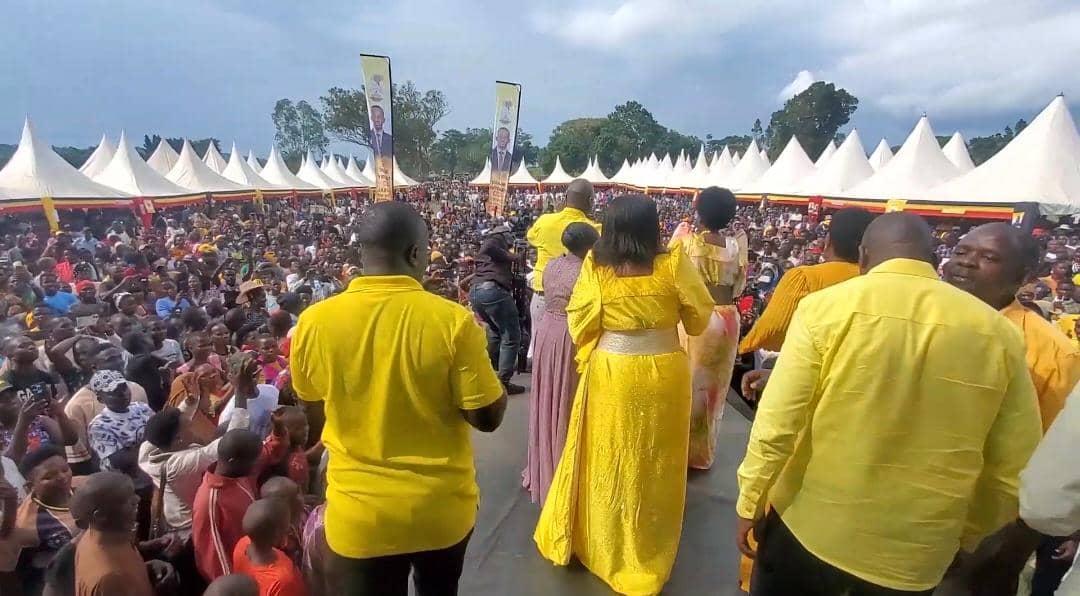Africa-Press – Uganda. As the race for the Mityana Municipality mayoral seat gains momentum, voters have issued a strong message to political aspirants: do not bank on party loyalty alone.
Residents across the municipality say they are growing disillusioned with party politics and will instead vote based on individual merit, track record, and commitment to service delivery.
“We are no longer swayed by political parties. We want leaders who can deliver services,” said Birungi Gorret, a resident of Mizigo village. “Whether one belongs to NUP, NRM, or no party at all, what matters is their ability to work for the people.”
The remarks come amid rising political tension between incumbent mayor Faustine Mukambwe Lukonge, the National Unity Platform (NUP) flagbearer, and Fred Wotonava, a former NUP hopeful now running as an independent after being denied the party ticket.
The two rivals have dominated public discourse in recent weeks, with each staging mass mobilization drives, rallies, and fiery public exchanges. Observers say the Mukambwe–Wotonava showdown has overshadowed other contenders and become the focal point of the race.
“You can already feel the tension on the ground,” noted a political analyst in Mityana. “Everywhere you go in town, it’s either Mukambwe’s supporters or Wotonava’s supporters clashing verbally. The race has turned into a duel between these two.”
The official lineup, following the conclusion of local government nominations, includes Moses Tugume (NRM), Nalongo Grace Lubwama (PFF), Barylon Mukalazi (Independent), and Ssennabulya Kakumba (Independent). However, Mukambwe and Wotonava remain the frontrunners in what is shaping up to be one of the most closely watched mayoral races in the district.
Mukambwe, who defeated NRM’s Esther Ndyanabo in the 2021 elections, is seeking re-election on the strength of her record as Mityana’s second mayor since the municipality’s elevation from town council status in 2016.
Wotonava, meanwhile, has turned his disqualification from the NUP primaries into a campaign point, branding himself as a grassroots candidate and “the people’s choice” allegedly sidelined by internal party politics.
His camp continues to frame his independent run as a movement for inclusivity and empowerment, attracting support from sections of voters who feel alienated by mainstream party structures.
Despite the political drama, residents continue to express growing frustration with leaders who fail to address basic community needs.
“We saw what happened in the past elections. Party cards alone cannot run a city,” said Nantale Olivia, a food vendor in Busimbi Division. “What we want are leaders who understand our challenges — poor sanitation, unemployment, and lack of health facilities.”
As official campaigns draw near, the pressure is on for candidates to prove they can deliver real change — with or without a party card.
For More News And Analysis About Uganda Follow Africa-Press






